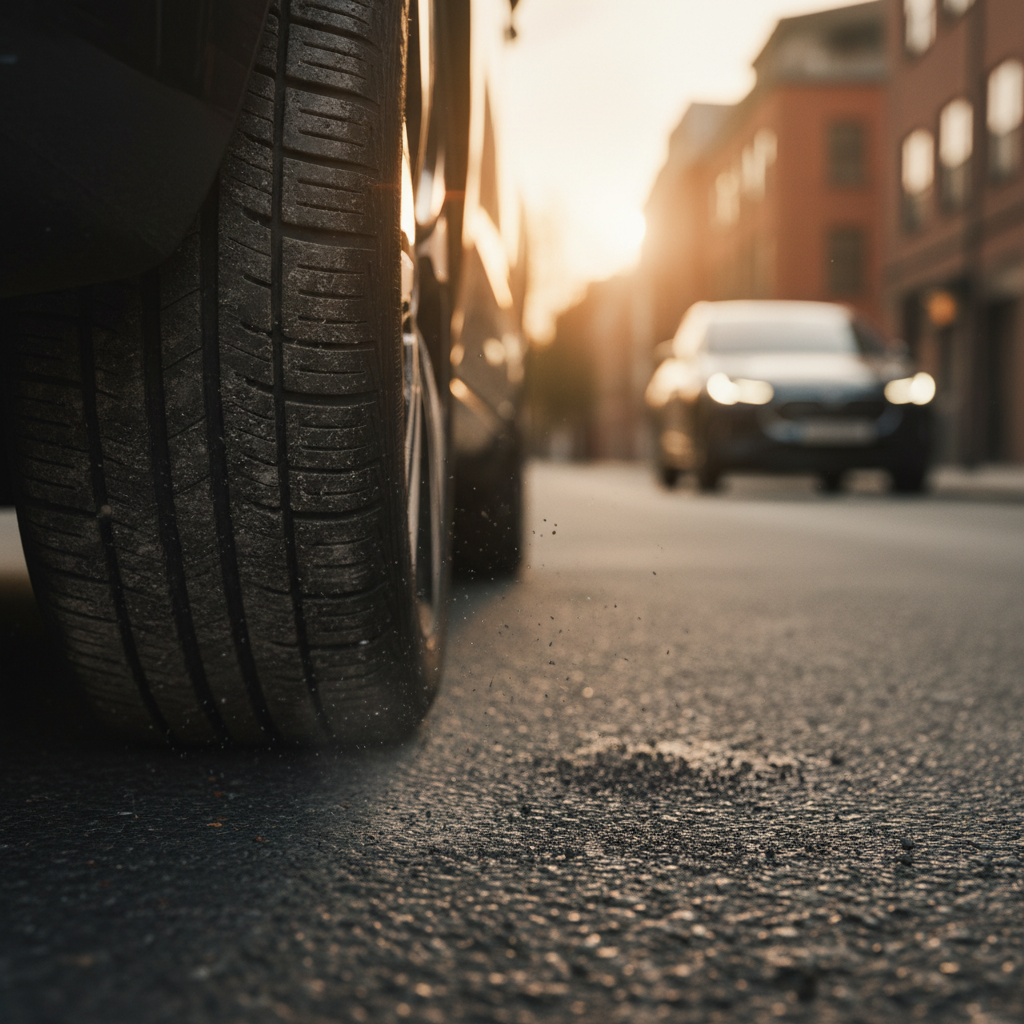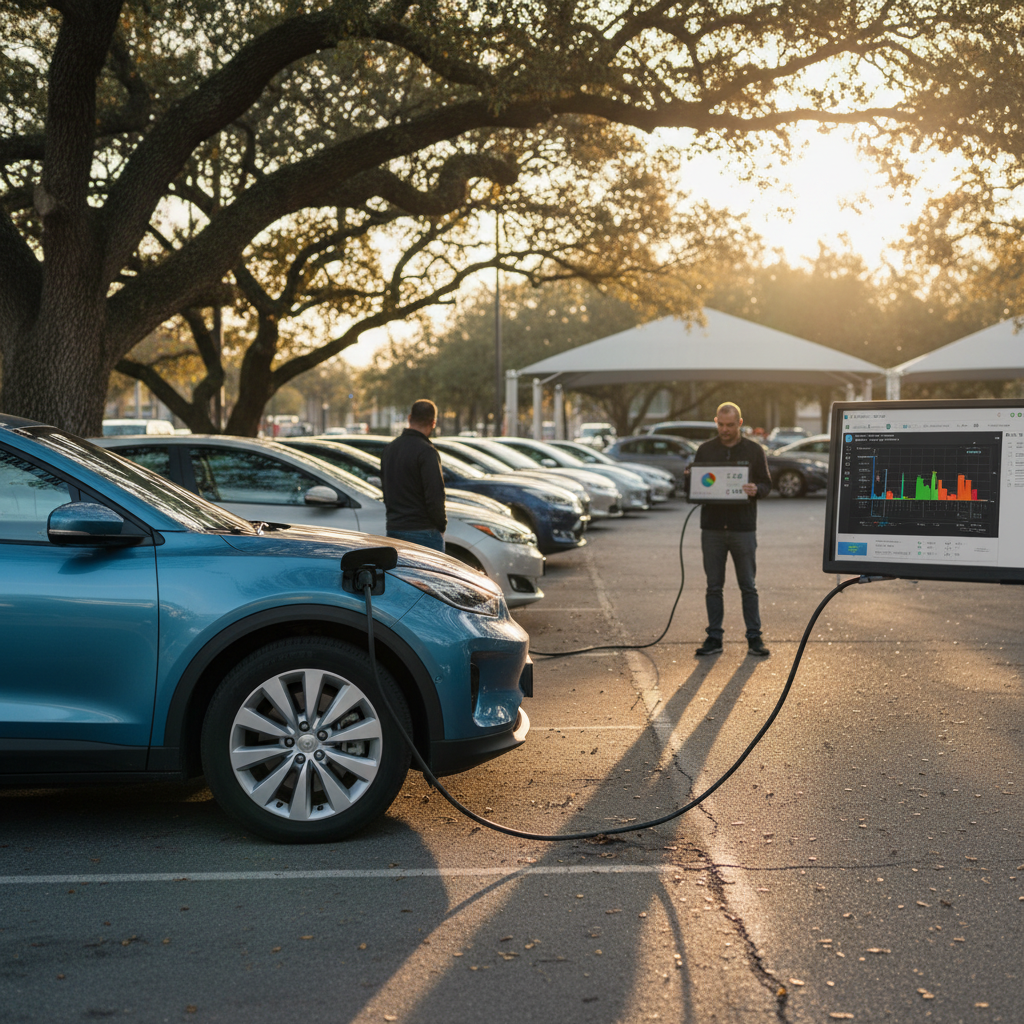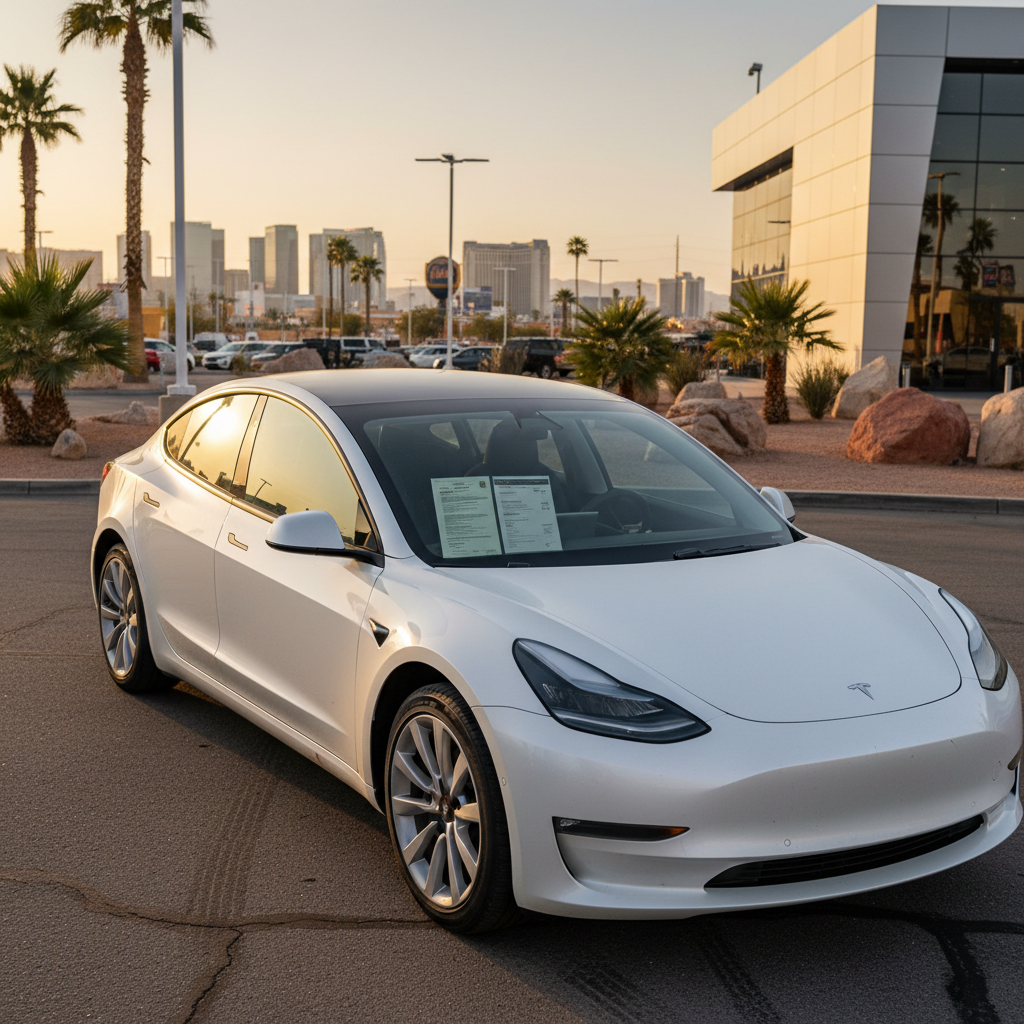If you’re wondering “where can I charge a Kia Niro near me?”, you’re not alone. The Niro EV is efficient and easy to live with, but only if you know how to plug into the mix of home chargers, public networks, and, now, Tesla Superchargers that are available across the U.S. This guide walks you through every option so you can charge confidently wherever you are.
Kia Niro charging basics
How to think about charging your Kia Niro
Before you search “where to charge a Kia Niro near me,” it helps to split charging into three buckets: at home, around town, and on road trips. Most owners do 70–90% of their charging at home or at work, and use public DC fast charging mainly when they’re away from their usual routine.
Daily charging (home & work)
This covers your commuting and errands. A Level 1 (120V) outlet can work in a pinch, but a Level 2 (240V) charger is the sweet spot: it can fully recharge a Niro EV overnight.
Think of this as your “fueling station in the driveway or parking garage.”
Public & road-trip charging
When you drive farther than your daily routine, you’ll rely on public Level 2 and DC fast chargers. This includes big networks like Electrify America, EVgo, ChargePoint, and now Tesla Superchargers with the right adapter.
Here, reliability and charger speed matter more than absolute price.
Start with your regular routes
Quick answer: Where to charge a Kia Niro near me?
Four places you can usually charge a Kia Niro nearby
Use a mix of home, workplace, public networks, and Tesla Superchargers
1. At home
If you have off‑street parking, plug into:
- Standard 120V outlet (slow but simple)
- 240V Level 2 wall charger or NEMA 14‑50 outlet
Home charging is usually the cheapest per kWh and most convenient.
2. At work
Many employers now offer Level 2 workplace charging. Check HR, your facilities team, or the company benefits portal.
Even a few hours at 6–7 kW can cover a full day’s driving.
3. Public charging networks
Use apps like PlugShare, ChargePoint, Electrify America, EVgo or your local utility’s network to find:
- Level 2 J1772 stations
- DC fast chargers with CCS plugs
4. Tesla Superchargers (with adapter)
As of 2025, Kia Niro EVs can use many Tesla Superchargers with a CCS1‑to‑NACS adapter from Kia.
Use the Tesla or Kia app (via Charge Pass) to see compatible sites and pricing before you drive over.
Don’t just follow your navigation blindly
Understanding Kia Niro charging speeds
To pick the right place to charge, you need a rough sense of how fast your Kia Niro can add energy. Recent U.S. Niro EVs have a usable battery of about 64.8 kWh, an onboard AC charger around 11 kW for Level 2, and DC fast‑charging peaks in the 80–100 kW range depending on model year. That translates roughly to a full empty‑to‑full Level 2 session in about six hours, and a 10–80% DC fast charge in the 40–45 minute ballpark.
Kia Niro EV: typical U.S. charging speeds
Approximate times for recent Niro EV models; real‑world times vary with temperature, battery state of charge, and charger quality.
| Charger type | Connector | Typical power | Use case | Approximate time |
|---|---|---|---|---|
| Level 1 home outlet | J1772 (via included cable) | 1.4 kW (120V, ~12A) | Emergency / light nightly top‑ups | ~50–60 hours 0–100% |
| Level 2 home or public | J1772, 240V | 7–11 kW | Daily charging at home, work, or around town | ~6–10 hours 0–100% |
| DC fast (50 kW) | CCS1 | Up to 50 kW | Older or slower public fast chargers | ~60–75 minutes 10–80% |
| DC fast (80–100 kW) | CCS1 | 70–85 kW sustained | Highway fast chargers, road trips | ~40–45 minutes 10–80% |
| Tesla Supercharger (NACS) | NACS via Kia adapter | Up to ~100 kW (Niro‑limited) | Extra fast‑charge option where CCS is sparse | Similar to CCS: ~40–45 minutes 10–80% |
Use this as a planning guideline, not a promise, charge curves and conditions matter.
Why times are always “about”
Best apps and tools to find Kia Niro chargers near you
When you search “where to charge a Kia Niro near me,” you’ll be flooded with options. The trick is to use a small toolkit of apps that reliably show plug type, power level, and recent check‑ins from other drivers.
Core tools every Kia Niro driver should install
These cover almost every charger you’re likely to use in the U.S.
PlugShare
Why it matters: PlugShare is the crowdsourced map the EV world runs on. Drivers log check‑ins, photos, and reliability ratings.
- Filter by J1772 and CCS
- See station reliability scores
- Great for planning unfamiliar routes
ChargePoint app
ChargePoint runs a large Level 2 and DC fast network and also lists many third‑party stations.
- Start & pay from the app
- Works well for workplace & retail sites
Electrify America & EVgo
These two apps cover many highway‑corridor DC fast chargers. Good for long trips in a Niro.
- Filter for CCS only
- Check real‑time status & pricing
Kia Access / Kia Charge Pass
Depending on your model year and region, Kia offers integrated access to partner networks.
It can unify billing and sometimes unlock promotional rates on major networks.
Your car’s built‑in navigation
Newer Kia Niro EVs can surface nearby chargers on the infotainment screen.
It’s convenient, but still worth cross‑checking with PlugShare for the latest status.
Tesla app (for Superchargers)
If you plan to use Tesla Superchargers with an adapter, install the Tesla app.
You’ll see compatible sites, live stall availability, and current pricing.
Smart search filters to use
Using Tesla Superchargers with a Kia Niro
For years, Kia drivers looked enviously at the red‑and‑white Supercharger stalls they couldn’t use. That’s changing. As of 2025, Kia EVs, including the Niro EV, have official access to much of the Tesla Supercharger network in North America using a CCS1‑to‑NACS adapter sold through Kia dealers and tied into Kia’s software ecosystem.
- Most existing Niro EVs in the U.S. still have a CCS1 inlet. You use a Kia‑branded CCS1‑to‑NACS adapter to plug into NACS‑equipped Superchargers.
- Kia’s adapter is engineered to match the Niro’s ~80–100 kW DC fast‑charge capability, so you won’t see the 250+ kW speeds that some Teslas do, but you don’t need them.
- Access is being rolled out via Kia’s apps and infotainment; you authenticate your car or account so Tesla can bill you correctly.
- Not every Supercharger stall is enabled for non‑Tesla vehicles yet, and some locations may only offer partial support. Always check in the Tesla or Kia app before detouring.
How to use a Tesla Supercharger with your Kia Niro
1. Get the Kia‑approved adapter
Purchase or claim your <strong>CCS1‑to‑NACS adapter</strong> from a Kia dealer or official channel, not a random third‑party marketplace. This keeps you inside Kia’s warranty and safety envelope.
2. Set up Kia Access and Tesla apps
Create accounts in <strong>Kia Access</strong> (and Charge Pass if available) plus the <strong>Tesla app</strong>. Make sure your payment methods are current.
3. Find an enabled Supercharger
In the Tesla or Kia app, filter for sites that support non‑Tesla EVs. Prefer stations with plenty of stalls and amenities on site.
4. Check for physical fit
The Niro’s charge port is behind the front grille, while Tesla cables are comparatively short. Park carefully so the cable reaches without strain or blocking adjacent stalls.
5. Plug in and start session
Attach the adapter to the Supercharger handle, plug into your Niro, and start the session in the Tesla or Kia app if it doesn’t auto‑start. Confirm charging speed on your dash.
6. Unplug and stow the adapter
When finished, stop charging via the app or car, unplug the handle, and detach your adapter. Stow it securely so it’s not bouncing around in the trunk.
Safety & etiquette at Superchargers
Home and work charging options for Kia Niro owners
The “near me” that matters most long‑term is your driveway or parking garage. Dialing in home or workplace charging makes Niro ownership dramatically easier, because you start most days with the equivalent of a full tank.
Home charging options
- Level 1 (120V): Uses the standard outlet and cable that often comes with the car. Adds just a few miles of range per hour, fine for low‑mileage drivers.
- Level 2 (240V, 32–48A): A dedicated wallbox or 240V outlet can add roughly 25–35 miles of range per hour. That’s enough to fully recharge a Niro overnight from low state of charge.
If you own your home and drive regularly, a Level 2 install is usually the best quality‑of‑life upgrade you can make.
Workplace and shared parking
- Employer chargers: Many companies offer free or low‑cost Level 2 charging as a perk.
- Shared garages: Some apartment and condo garages now have J1772 wallboxes or ChargePoint/Volta‑style stations.
- Policy matters: Clarify time limits, payment methods, and whether you’re allowed to leave your car all day.
If you can’t install home charging, stacking workplace, public, and occasional DC fast charging still makes the Niro workable.
Talk to your landlord or HOA

How to plan road trips in a Kia Niro
The Niro’s efficiency and moderate battery size make it a solid road‑trip companion, as long as you treat charging as part of the trip, not an afterthought. When you’re asking “where to charge my Kia Niro near me” on a long drive, what you really want is “where can I stop that fits my schedule?”.
Road‑trip charging strategies for different drivers
Efficiency‑maximizer
Use ABetterRouteplanner or PlugShare’s trip planner to model your specific Niro and driving style.
Target chargers when you’re between 10–60% state of charge; that’s where the car charges fastest.
Stick mostly to 80% rather than waiting for a few slow extra percent at the top.
Family road‑tripper
Plan fast‑charge stops around meals and bathroom breaks, roughly every 120–160 miles.
Favor large sites with multiple CCS or NACS stalls so you’re less likely to wait.
Keep a backup charger identified within 20–30 miles in case the first choice is down or congested.
Urban weekender
Top off at home to near 100% before leaving town.
Use destination Level 2 chargers at hotels or parking garages so you’re full again by morning.
If your lodging doesn’t have charging, look for nearby public Level 2 where you can stay parked for several hours.
Use the car’s navigation when it helps
Cost and time: what to expect when you plug in
Kia Niro charging: ballpark cost & time
Public DC fast charging is usually more expensive than home charging, sometimes similar to, or even above, gasoline on a per‑mile basis. That doesn’t make it a bad deal; you’re paying for speed and convenience. The key is to lean on home or workplace charging for day‑to‑day, and treat fast charging as a road‑trip expense, not a daily habit.
Watch for idle fees and session limits
Checklist: How to make sure a station works for your Niro
Pre‑flight checks before you drive to a charger
1. Confirm the connector type
Your Niro uses <strong>J1772</strong> for Level 1/2 and <strong>CCS1</strong> for DC fast charging. For Tesla sites, you’ll use <strong>NACS via the Kia adapter</strong>. Make sure the station actually offers the plug you need.
2. Check recent check‑ins
In PlugShare or a network app, look at the last few user reports. If multiple people mention broken hardware recently, pick a backup station.
3. Look at power level, not just “fast” vs “slow”
A 24 kW “fast charger” may be barely quicker than a strong Level 2 for a Niro. For real road‑trip use, try to target 50 kW and up.
4. Confirm access and payment
Is the charger behind a gate, in a paid garage, or hotel‑guest only? Do you need an RFID card, specific app, or credit card? Avoid surprises, especially late at night.
5. Consider amenities and safety
Prefer locations with lighting, bathrooms, and people around, travel plazas, busy shopping centers, or hotels. It makes the downtime more useful and comfortable.
6. Bring your own cable & adapter
Keep your Level 1 cable and any adapters (including your Kia CCS‑to‑NACS adapter) neatly stored in the car so you’re never stranded by a missing piece of hardware.
FAQ: Kia Niro charging near me
Frequently asked questions about charging a Kia Niro nearby
Thinking about a used Kia Niro EV?
If you’re still shopping and wondering how easy it will be to charge a used Kia Niro near you, the good news is that the charging story keeps getting better. The Niro’s mix of reasonable battery size, solid efficiency, and now access to Tesla Superchargers means you’re buying into an ecosystem that’s likely to improve over the life of the car rather than get worse.
How Recharged can help
Because Recharged handles financing, trade‑ins, nationwide delivery, and a fully digital purchase process, you can focus on the parts that actually matter: how the Niro fits your life, how you’ll charge it, and whether its range suits your regular routes. If you’re near Richmond, VA, you can also visit our Experience Center to talk one‑on‑one with EV specialists and see vehicles in person.
Bottom line: finding reliable Kia Niro charging anywhere
When you strip away the jargon, solving the “where to charge a Kia Niro near me” question comes down to a simple playbook: set up the best home or workplace charging you can, keep a small toolkit of apps for public and fast charging, and treat Tesla Superchargers as a powerful extra option, not a crutch. With those pieces in place, your Niro becomes a crossover you refuel mostly while you sleep or shop, not a car you babysit at every plug.
As the charging landscape continues to evolve, the Niro’s standard J1772/CCS hardware plus growing NACS support means you’re buying into a broadly compatible standard, not a dead end. Whether you’re already an owner or considering a used Kia Niro EV from Recharged, a little upfront planning will make your day‑to‑day charging nearly invisible, and your long‑distance driving a lot less stressful.



